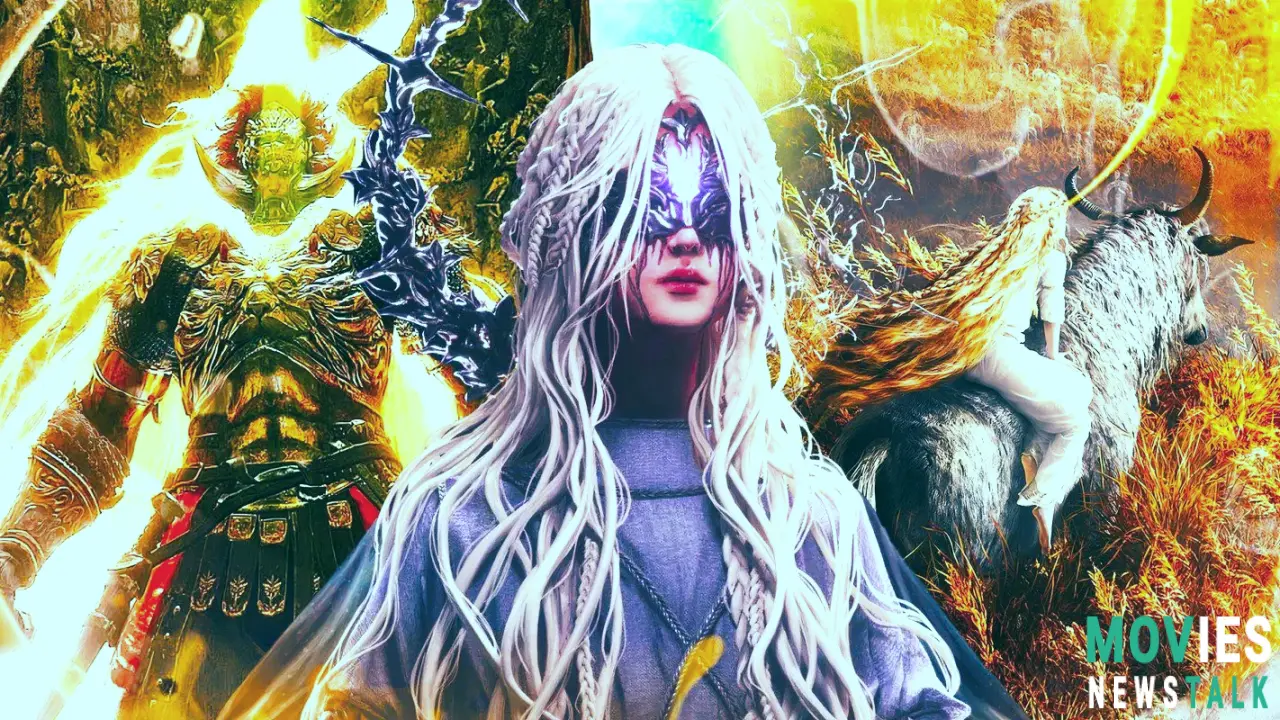Shadow Of The Erdtree's Resurrected Radahn Doesn't Live Up To His First Fight
Elden Ring: Shadow of the Erdtree is a fantastic DLC, except for the final boss. The Promised Consort is a deeply disappointing rehash that required reconsideration. After defeating Messmer, winding through an ethereal floating city, and stumbling into a breathtaking battle involving almost every NPC from the DLC, Elden Ring: Shadow of the Erdtree's final boss can't help but feel like an anticlimax. The issue is not one of difficulty; Promised Consort Radahn is already extremely difficult. He has a massive health bar, and his second phase spews out so much magical confetti that spotting his oncoming attacks can be difficult. Ultimately, however, he is a lesser version of a boss that players have previously encountered.
Starscourge Radahn is a significant and spectacular fight in the base game. Promised Consort appears to try to outdo the original boss in terms of difficulty and visual effects, but all of this bombast misses Radahn's dramatic point. Miquella's storyline throughout the DLC is intriguing and deserves to be resolved during the final boss encounter, but given Elden Ring's extensive lore and setting, FromSoftware could have found a more unique vessel for the bratty Empyrean's divine ascension.
Shadow of the Erdtree's final boss was a missed opportunity to showcase previously unseen lore.
Elden Ring's Outer Gods are central to the setting. They are described by their devotees as infallible, near-omnipotent entities that bestow magic and guidance upon the Lands Between, but they are actually fickle Lovecraftian aliens who are as prone to cruelty, selfishness, and infighting as any mortal or demigod. The Greater Will is not truly divine; rather, it is a parasitic, colonial entity that siphons off the natural power of Elden Ring's world and uses it to establish or expand its own empire. When the Shattering disrupts this experiment, it attacks Marika before fleeing into the stars.
The absence of the Outer Gods contributes to Elden Ring's setting's emotional depth. However, given that the final boss in Shadow of the Erdtree may be the last time players see the IP, it would have been an ideal opportunity to defy expectations and showcase an Outer God in all of its terrible glory. Such a boss would have emphasized the player's power curve and made the futility of their quest for divine power more apparent.
Although the Greater Will is the most important Outer God in the setting, it is so fundamental to the nature of the Elden Ring and the Lands Between that introducing it in the DLC would have completely recontextualized and overshadowed the main game's endings. However, a lesser Outer God could have worked. The Formless Mother is an underground entity that is the source of all blood magic. Because Mohg is closely associated with this being, and Miquella eventually puppets his body, the Mother had plenty of opportunities to manifest during the final fight.
Aside from Mohg, it is implied that the Bloodfiend enemies were once humans who were transformed by the Formless Mother into the lumpy, controller-rumbling vampire creatures seen in the game, implying the god's presence in the Realm of Shadow. A fight with an Outer God, or some resemblance of one, would have highlighted the insignificance of the player's and the demigods' war-making, and would have felt fittingly climactic as a final challenge. Radahn is a narrative dead end, but with the Outer Gods, FromSoftware could have expanded on the game's ambiguous relationship with divinity.
FromSoftware was correct to include Miquella in the final boss fight.
Despite the game's lackluster handling of the Radahn subplot, Miquella remains an effective antagonist. Established in the base game lore as a god of compassion, the saintly protector of those rejected by Grace and the tyranny of the Golden Order, the DLC gradually tells the story of Miquella's dehumanization as they ascend to a nebulous concept of godhood. The golden crosses strewn across the map represent locations where the demi-god stripped themselves of an essential human trait: their worldly flesh, heart, doubt, and, ultimately, love.
Miquella must sacrifice their humanity to achieve divinity and dominion, similar to how the Hornsent suppressed doubt during their cruel religious practices. The irony, of course, is that Miquella appears to see godhood as a means of ushering in a utopian age of compassion. The wispy being encountered during the final boss is devoid of love and empathy, rendering it hopelessly incapable of realizing the compassionate world they once imagined. Divinity and power are synonymous in Elden Ring. In the DLC, it is a corrupting force that opposes human kindness.
Miquella is an appropriate villain because their folly mirrors that of the player, who is also seeking to claim a divine power in the form of the Elden Ring. Elden Ring's endings, like Dark Souls' futile decision to link or sever the First Flame, only add to the suffering of the setting. Miquella reflects the player's inability to effect meaningful change, and it is this narrative richness that makes Radahn stand out like such a sore thumb. Shadow of the Erdtree is an excellent expansion, but for the sake of Miquella and the player, a better final boss is required.

